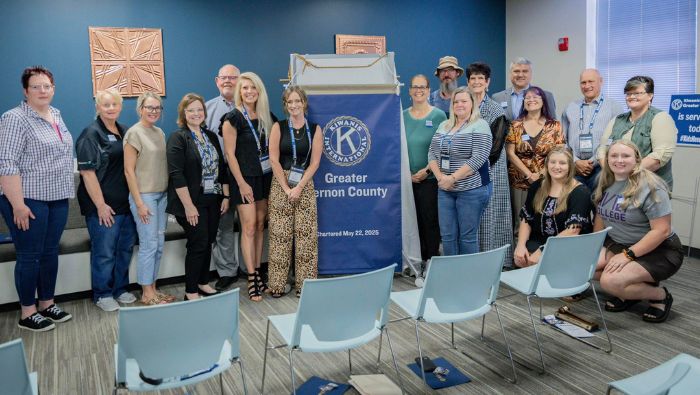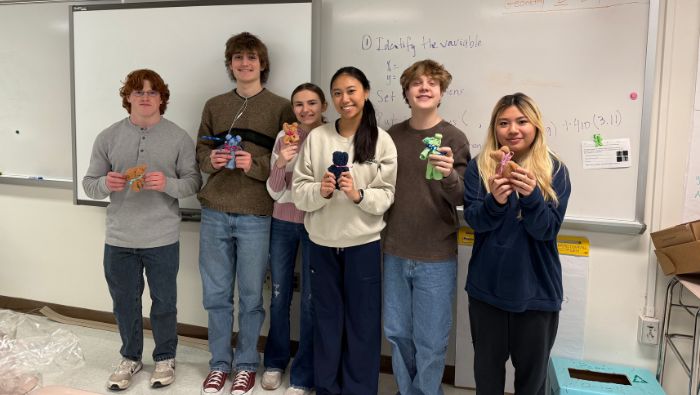
New club kickstarts its signature project
The Kiwanis Club of Greater Vernon County launches into service with a Children’s Fund grant.
By Erin Chandler
The newly chartered Kiwanis Club of Greater Vernon County, Missouri, U.S., is one of the latest clubs to apply for and receive a Kickstarter grant from the Kiwanis Children’s Fund.
All clubs that charter with 30 or more active members are invited to apply for a Kickstarter grant to help fund a signature project — the service, event or fundraiser that the club will become known for in the community.
For the Kiwanis Club of Greater Vernon County, that project is the Feeding Futures After School Nutrition Program. The club will partner with local schools to provide nutritious snacks and meal bags to students who might not have reliable access to food outside of school breakfasts and lunches. Club members will personally purchase, package and deliver the food to students’ homes. They hope the project will reach 100-150 kids in its first year.
We asked the club’s president, Kalli Gober, a few questions about the experience of launching the project as a new Kiwanis club.
What led your club to choose the Feeding Futures After School Nutrition Program as your signature project?
As a new Kiwanis club, we wanted a project that addressed an immediate, visible need in our community and directly supported children and families. Food insecurity continues to be a real challenge in our area, especially after school hours when many kids don’t have reliable access to meals or snacks. The Feeding Futures After School Nutrition Program was a natural fit because it allows us to make a direct, meaningful impact while building partnerships with schools, local organizations and volunteers. It aligns perfectly with Kiwanis’ focus on improving the lives of children and gives our members a hands-on way to serve.
What are you most looking forward to in your club’s signature project?
I’m most looking forward to seeing the project come to life and watching our members, community partners and volunteers come together around a shared purpose. There’s something powerful about a simple, practical project that meets basic needs for our community. My favorite part will be knowing that what we’re doing will have an immediate impact.
What are some of the challenges, rewards and/or surprises you’ve encountered as a new Kiwanis club?
One of the biggest challenges has been building momentum and awareness as a new club. It takes time to grow membership, establish routines and help people understand what Kiwanis is all about. At the same time, one of the biggest rewards has been seeing how willing our community is to support the mission once they learn about it. A pleasant surprise has been the number of partnerships and connections that have come from simply reaching out and sharing our vision. People truly want to help when given the opportunity.
What advice would you give other new Kiwanis clubs, especially those considering a Kickstarter grant application?
Start with a project that meets a clear, local need and that your members are genuinely excited about. Keep it simple, practical and achievable in your first year. When applying for a Kickstarter grant, be specific about the impact you’ll make and the partnerships you’ll build. Don’t be afraid to ask for help or to collaborate — community support is often stronger than you expect. Most importantly, focus on projects that create visible results, because that momentum will help your club grow and stay engaged.
You can learn more about Kickstarter grants in the members’ section of our website. Remember, all eligible clubs will receive an invitation to apply for a Kickstarter grant from the Kiwanis Children’s Fund — but you still need to fill out the application!
If you have questions, email grants@kiwanis.org. You can also call 1-800-KIWANIS (U.S. and Canada) or +1-317-217-6225 (worldwide).


